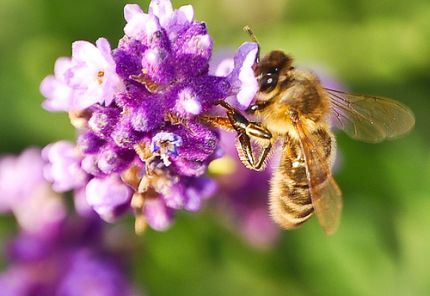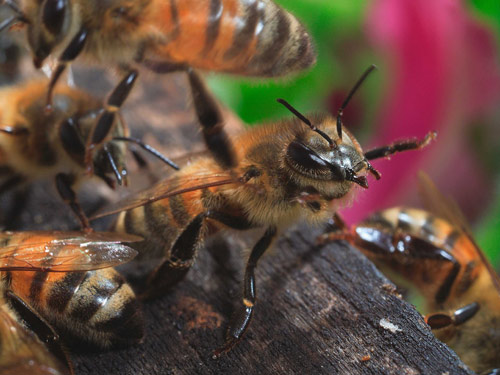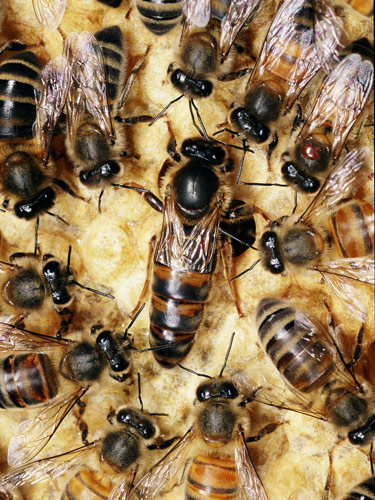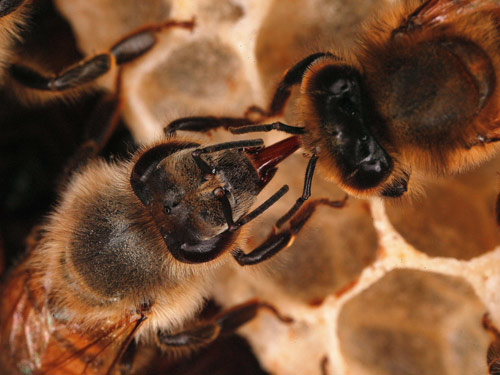I love bees. Not only because they are cute, but because they assist me in growing food, AND honey is my go to cure all for ailments inside and out. I don't use chemicals on blooming plants, I always plant bee friendly or bee attractive plants, and I leave certain areas of my land untouched, so that the bees can have all the clover they want, as well as any other native plants they might like. Protecting the wild bee population is one of the most important things that I do, in my opinion. I help them, they help me.
Check out this very interesting link to bee-havior.
Check out this very interesting link to bee-havior.
From New Scientist.com,
The extraordinary mental feats of bees are forcing us to rethink what we thought we knew about intelligence. Prepare to be surprised at what a tiny brain can do as we take a look at some of what these industrious honey-makers get up to.
Guarding the door
Throughout history, bees have been revered for their altruism and cooperation – but they occasionally engage in
all-out warfare, invading another hive and steal its honey. For this reason, some workers linger at the hive entrance to ensure that no enemy bees make it inside. The guard bee in this picture can be seen with its body arched, waiting to inspect and attack intruders.
Attending the queen
In any hive, the queen bee quickly establishes an entourage befitting its royal status. Here, the queen honeybee (Apis mellifera) sits at the centre of its court. As sign of their
loyalty, its attendants lick their sovereign and clash their antennae against her majesty's – a common behaviour that helps establish group membership in the hive.
Can I have a bite?
Bees share and share alike, passing their precious nectar to other members of their hive. This also allows them to exchange relevant hormones, helping to prepare the behaviour of the colony for different situations.





 RSS Feed
RSS Feed